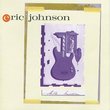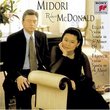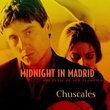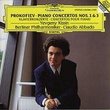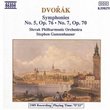| All Artists: Felix [1] Mendelssohn, Benjamin Frith Title: Mendelssohn: Piano Works, Vol.5 Members Wishing: 1 Total Copies: 0 Label: Naxos Release Date: 5/11/1999 Genres: Special Interest, Classical Styles: Opera & Classical Vocal, Forms & Genres, Short Forms, Sonatas, Historical Periods, Romantic (c.1820-1910), Instruments, Keyboard, Symphonies Number of Discs: 1 SwapaCD Credits: 1 UPCs: 730099454124, 730099454124 |
Search - Felix [1] Mendelssohn, Benjamin Frith :: Mendelssohn: Piano Works, Vol.5
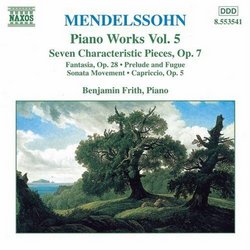 | Felix [1] Mendelssohn, Benjamin Frith Mendelssohn: Piano Works, Vol.5 Genres: Special Interest, Classical |
Larger Image |
CD DetailsSimilarly Requested CDs
|
CD ReviewsThe finale of a terrific series Hexameron | 02/12/2007 (4 out of 5 stars) "Naxos has been one of the very few labels to risk recording all of Mendelssohn's piano works, most of which are unknown. Only a handful of his solo piano compositions have established a foot-hold in the repertoire. Having now heard all of Mendelssohn's piano works through this Naxos series, I feel there are more pieces that deserve popular acclaim. This disc features a few of those pieces, but also some duds as well. Benjamin Frith's performance is as always, eloquent and radiant.
The Op. 28 Fantasia is also known as the Sonate ecossaise and has much going for it in the first and last movement. Marked "Con moto agitato - Andante," the first movement is a melancholy and serious one, presenting some eerie arpeggios and a beautiful main theme. Only 5 minutes long, Mendelssohn manages to sustain new and passionate ideas and cram them together to create one of his most satisfying short movements. The next movement is unremarkable while the Presto has some devilish moments and some unexpected harmonies. Mendelssohn seems in his prime when he writes darker music. Thus, this five volume Naxos series has only put forward a mystery for me. Why did Mendelssohn choose superficial flickering scherzo-like moods for a lot of his piano compositions when his talent for writing brooding and poignant music is so breathtaking? Through this series, I've found at least three dark works that continue to echo in my memory; unfortunately, Mendelssohn never nurtured this darker side. The Seven Characteristic Pieces, Op. 7 offer only a few pieces worth mentioning, the "Schnell und beweglich" and the mighty "Fuga." "Schnell und beweglich" is a unique little piece with some dazzling passagework. But the greatest gem out of this set must be the Fuga, a glorious and enthralling 7 minute fugue. Mendelssohn's proclivity for elegant counterpoint is especially apparent here. However, scattered throughout these fugal episodes are some highly Romantic augmentations, showing that Mendelssohn wasn't afraid to pound away in the bass to imitate a roaring organ. All of his ideas in this fugue are noble and profound. Therefore I think this is definitely one of his greatest fugues; this work proves that invaluable gems are indeed buried within a composers' opus. Who would have thought a youthful Op. 7 set of miniatures would contain a magnificent fugue like this? Actually, the subsequent Prelude and Fugue in E minor is not that bad either. Strangely, the prelude was written 14 years before the fugue but they make a wondrous pair. The last two pieces, though, are like Jekyll and Hyde. The Sonata movement is very Schubertian and reservedly Classical, but almost devoid of a decent melody or interesting tension. The Capriccio, however, is one of Mendelssohn's most technically showy pieces I've now heard. Perhaps the genesis of this composition had much to do with Mendelssohn hearing Liszt play. It seems like he wants to prove that he can compose and play bravura passages, too. It's amazing what a touch of virtuosic splendor can do to a typically mild piece from Mendelssohn. His insistence on writing such a sparkling and fiery piece has actually infused his musical ideas with drama. It's a tour-de-force and perhaps Mendelssohn's most electrically-charged piano work; I'd like to see other pianists champion this. Bottom line: Although there are a few dull pieces here, mostly in the Op. 7, this recording makes up for it by sprinkling some astounding compositions in between. The first movement of the Fantasia, the Fuga from the Op. 7, and the Capriccio Op. 5 are absolutely marvelous. Naxos has done an excellent job recording every single Mendelssohn piano solo work. I feel their efforts have paid off, even if there were only a dozen truly outstanding works in this five-volume series. It's always worth it to expose these kinds of neglected treasures." |

